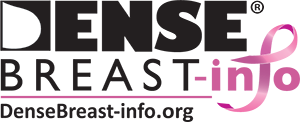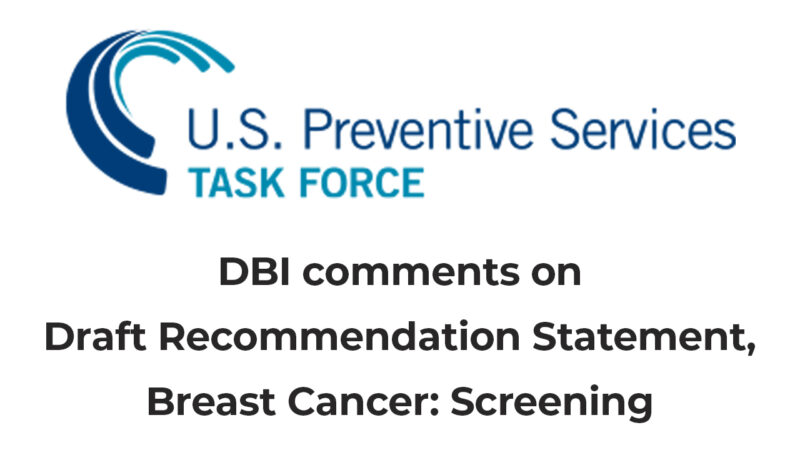USPSTF, ACR Recommendations, U.S. Insurance Legislation
United States Preventive Services Task Force (USPSTF)
USPSTF updated screening guidelines updates were just published and now include the recommendation that mammography screening in normal risk women occur every other year beginning at 40 (was 50). Unfortunately, for women with dense breasts, the recommendations incorrectly conclude there is “inadequate” evidence to support adding supplemental screening ultrasound or MRI after a mammogram and fail to recognize the important of annual screening.
- See DBI’s Public Position, “The USPSTF Guideline Should Not Apply to Women with Dense Breasts.”
- NEXT WEEK: look for JBI Opinion piece, “USPSTF Guideline Fails to Address Dense Breasts,” which includes a literature review. We will also share DBI comments to the USPSTF.
2023 ACR Screening Recommendations for Women at Higher Risk
New recommendations just published! For women at higher-than-average risk of breast cancer, the ACR recommends annual digital mammography, beginning between ages 25 and 40, and supplemental screening, depending on risk, with breast MRI as the supplemental method of choice. Notably, women with extremely dense breasts are considered to have approximately twice the “average” risk, and for women with dense breasts who desire supplemental screening, breast MRI is recommended.
Federal Bill, the Find It Early Act
The federal insurance bill, the Find It Early Act, has been re-introduced in this session of Congress by Reps. DeLauro and Fitzpatrick. Their announcement HERE.
New U.S. State Insurance Laws
Insurance coverage for breast imaging has been signed into law in:
- Pennsylvania (Act 1 of 2023). The law provides for “all costs associated with one supplemental breast screening every year if a woman is believed to be at an increased risk of breast cancer” due to specified reasons. The law also provides coverage for BRCA-related genetic counseling and genetic testing.
- Maryland (Chapter 0298). The law prohibits, “… except under certain circumstances, insurers, nonprofit health service plans, and health maintenance organizations that provide coverage for diagnostic and supplemental breast examinations from imposing a copayment, coinsurance, or deductible requirement for the examination.”
For more details, please visit the DBI Legislative Information tab.

